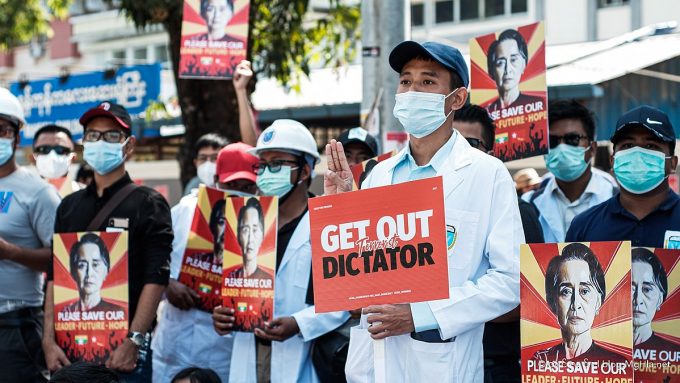Loadstar Podcast | January 2025 | Container shipping 2025: Hapag-Lloyd outlook, Swire’s transpacific strategy and Scan Global insight
In this special episode of The Loadstar Podcast, host Mike King unpacks a turbulent start ...

Garment manufacturers are considering whether to leave Myanmar, creating an uncertain future for domestic freight forwarders.
Human rights groups claim the military has killed over 800 protesters since seizing power four months ago, and with civil disobedience still active, there’s little prospect of a political resolution.
According to a report by the Garment Group of EuroCham Myanmar, the crisis has created safety, logistical and banking challenges for all businesses and employees.
“Declaration of martial law in some Yangon townships has particularly affected the ...
USTR fees will lead to 'complete destabilisation' of container shipping alliances
Outlook for container shipping 'more uncertain now than at the onset of Covid'
Flexport lawsuit an 'undifferentiated mass of gibberish', claims Freightmate
Shippers warned: don't under-value US exports to avoid tariffs – 'CBP will catch you'
Cancelled voyages take the sting out of spot rate declines this week
New Houthi warning to shipping as rebel group targets specific companies

Comment on this article